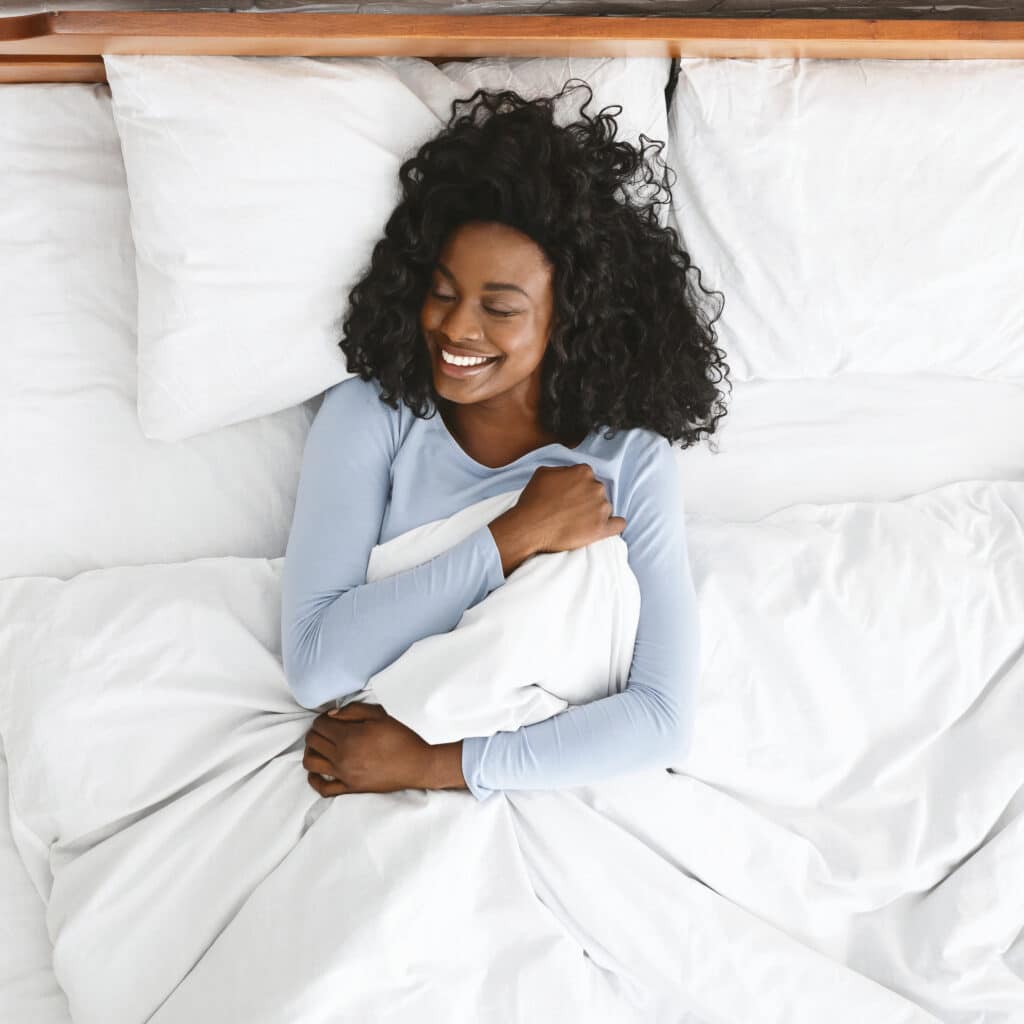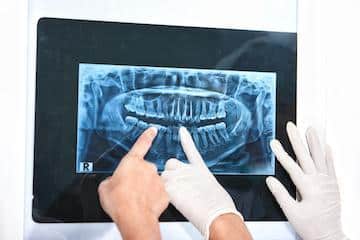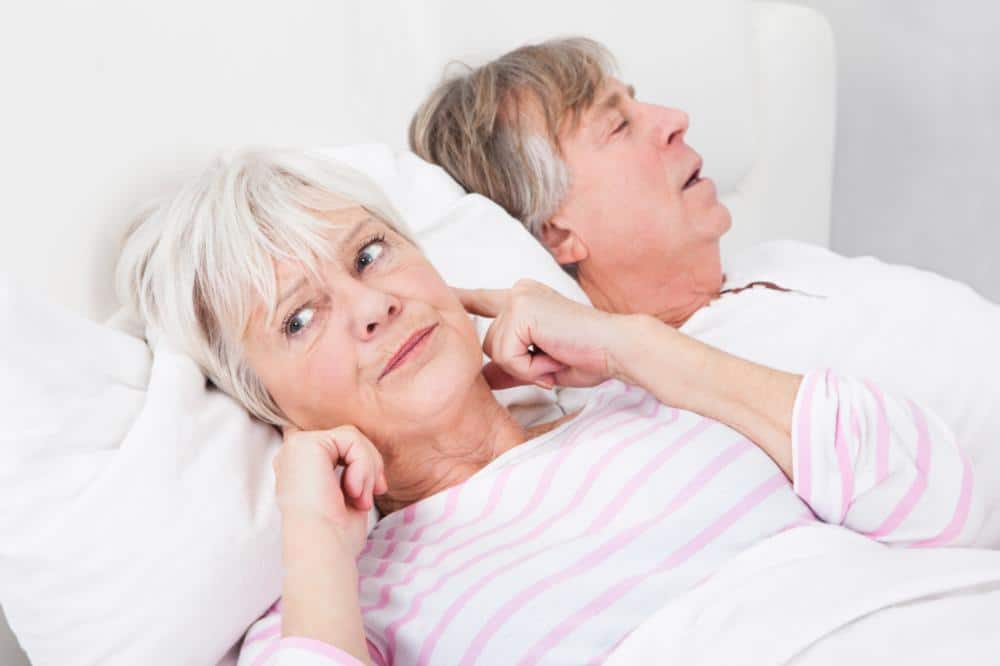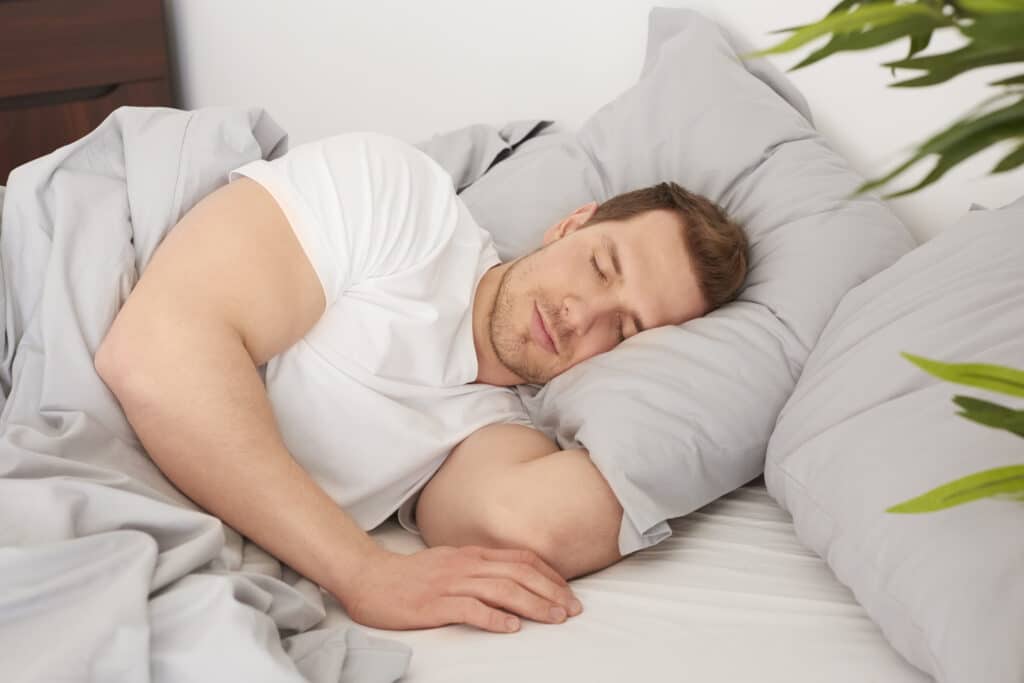When was the last time you got a good night’s sleep? If you or your partner are one of the estimated 50 to 70 million American adults who suffer from some type of sleep disorder, you understand that feeling well-rested can be hard to come by. Sleep disorders affect your health and quality of life, and you or your partner might even have a related medical condition that puts your health further at risk.
Quality sleep is not only enjoyable but also necessary for your overall health and wellness. If snoring, obstructive breathing, or other sleep-related problems are affecting your energy levels and hurting your health, our dentist may be able to help.

Snoring & What It May Mean
Snoring is disruptive to your bed partner, and many people who suffer from snoring may choose to sleep in rooms separate from their loved ones. This roadblock threatens intimacy and may create relationship problems, primarily if it’s used as a long-term solution. Earplugs, nose strips, white noise, and other environmental solutions only work so well and may leave both partners tired and moody even after a “full” night’s rest.
Snoring is not only an annoying nuisance to your bed partner; it can also be an indication of a serious medical condition known as obstructive sleep apnea.
Occasional snoring is normal, especially if you are sick with a cold or only snore in certain sleeping positions. If you or your partner snore constantly and loudly enough to keep the other person awake, however, you should speak with your doctor.
A medical doctor is the best person to determine whether the snoring is cause for concern or indicative of obstructive sleep apnea. Once your doctor decides and provides you with an official diagnosis, our dental office can then help you manage your snoring and obstructive sleep apnea.

Recognizing Obstructive Sleep Apnea
Obstructive sleep apnea, or “OSA,” is a condition that blocks your airway while you sleep. Although OSA is more common in overweight and obese people, men over 40, people with thick necks, people with high blood pressure, and African-Americans, nearly anyone can develop OSA under the right circumstances.
Snoring is usually the most visible sign of sleep apnea, but snoring by itself is not enough to know for sure. To make visiting your doctor about your snoring symptoms the most productive it can be, it’s helpful first to be aware of the warning signs to watch for.
Patients with obstructive sleep apnea generally experience:
- Headaches or sore throat upon waking
- Daytime grogginess & sleepiness even after sleeping for at least 7 hours
- Waking up in the middle of the night gasping, choking, or unable to breathe
- Loud, disruptive snoring
- A lack of clarity or feeling of “fogginess” during the day or difficulty concentrating or focusing on tasks
- Mood swings & increased irritability
- Feeling tired & unrested upon waking
Obstructive sleep apnea dramatically affects your sleeping habits. Because your breathing gets disrupted hundreds of times per night, you do not get the amount or quality of sleep you need to stay healthy. You may frequently wake up feeling groggy or experience afternoon fatigue. OSA also puts you at a higher risk for specific medical conditions such as:
- Depression or anxiety
- High blood pressure
- Stroke
- Heart disease
- Moodiness
- Daytime sleepiness or dozing
- Male erectile dysfunction
Since you do not receive adequate rest, you will also be at higher risk for automobile accidents. This risk can put you and others in danger. Therefore, it’s vital to seek out a diagnosis and the appropriate treatment if you suspect you or your partner might be living with OSA.

Diagnosis & Treatment Of Obstructive Sleep Apnea
Although our Phinney Ridge dentist can treat and monitor your obstructive sleep apnea symptoms, our dental office cannot be the one to diagnose you formally. Proper diagnosis of OSA usually requires a clinical or at-home sleep study that’s supervised by a medical doctor.
During your diagnostic sleep study, you will wear a monitor so that a sleep specialist can carefully analyze your results. Once you receive a definite diagnosis, the first line of treatment is often a CPAP (continuous positive air pressure) machine. A CPAP works by keeping your airway open during the night using a constant flow of air.
While CPAP treatment works great for many patients, it’s also not the right fit for everyone. Some people do not tolerate wearing a CPAP mask well and cannot get used to sleeping in this way. Others find that they remove the mask during their sleep or that their partner is unable to rest due to the noises from the machine.
If your doctor diagnosed you or your partner with obstructive sleep apnea but you have found CPAP therapy unsuccessful, please contact us at Phinney Ridge Dental. We can provide another option to treat sleep apnea and snoring.

Oral Appliance Therapy
At Phinney Ridge Dental in Seattle, WA, we offer an alternative to CPAP treatment: oral appliances for obstructive sleep apnea.
We recognize that CPAP machines don’t work for everyone’s lifestyles, and many of our patients expressed needing a treatment option that was quieter, smaller, and less invasive than wearing a mask.
To address this need, we design custom oral appliances that open your airway by gently sliding your lower jaw forward. These sleep apnea oral appliances look similar to traditional mouthguards and are a practical, effective way to stop storing and prevent the dangerous side effects of obstructive sleep apnea.
Millions of dental patients across the country currently use oral appliances to treat their OSA. The American Academy of Sleep Medicine recognizes oral appliance therapy as an approved way to mitigate OSA symptoms.
Because every mouth is a different size and has a specific structure, it would be ineffective to mass-produce one oral appliance that could “magically” fit every patient. Instead, dentists need to custom-make OSA oral appliances to ensure that they will fit properly and contour them to specific anatomical needs. Many patients find that oral appliance therapy is more comfortable, convenient, and easier to adjust to than CPAP therapy.
If you’re curious about this type of treatment and you need an obstructive sleep apnea oral appliance, Dr. Micah Bickel can examine your mouth and obtain the necessary impressions. Then, once your device is complete, you can go to sleep each night feeling safe and secure, knowing that your appliance will help protect your airway.


